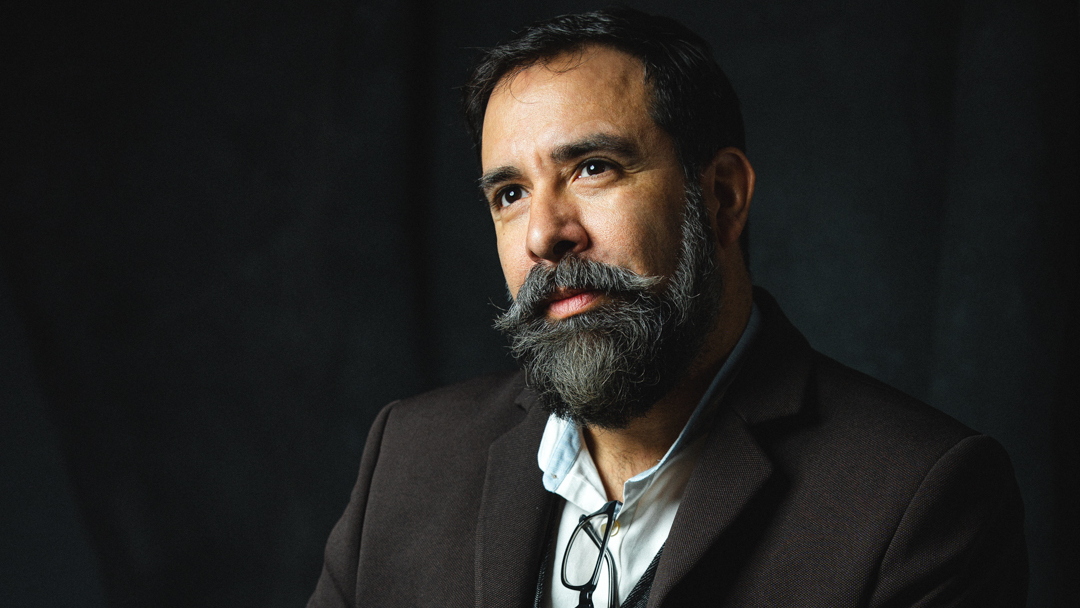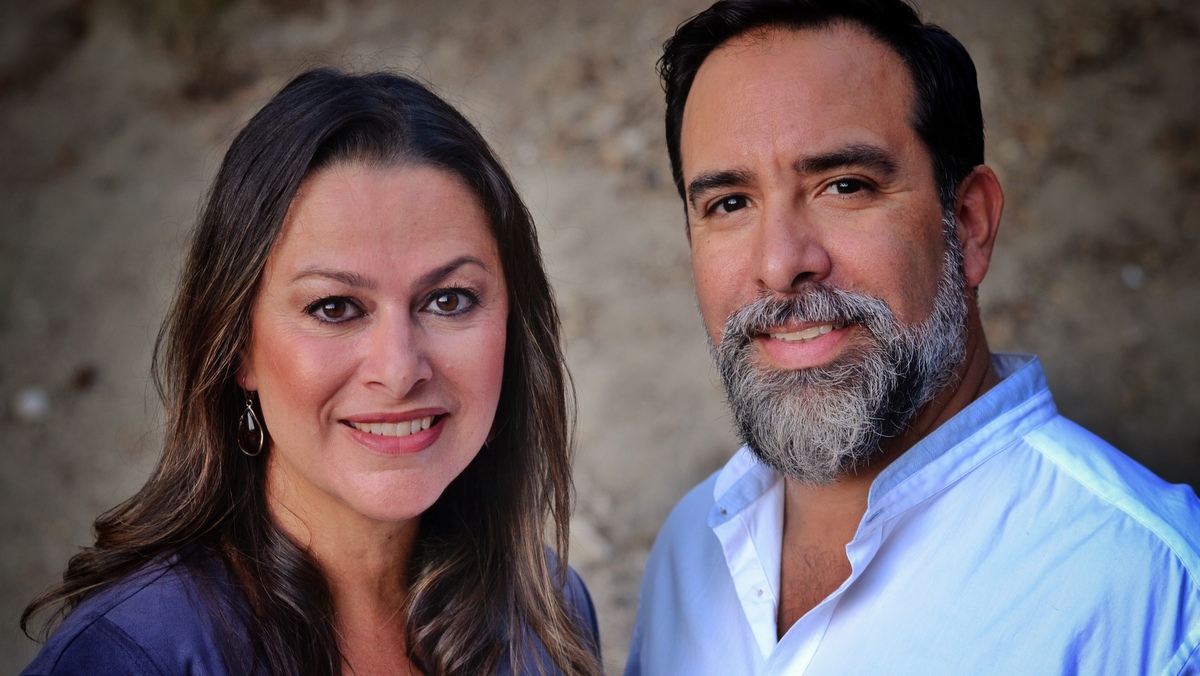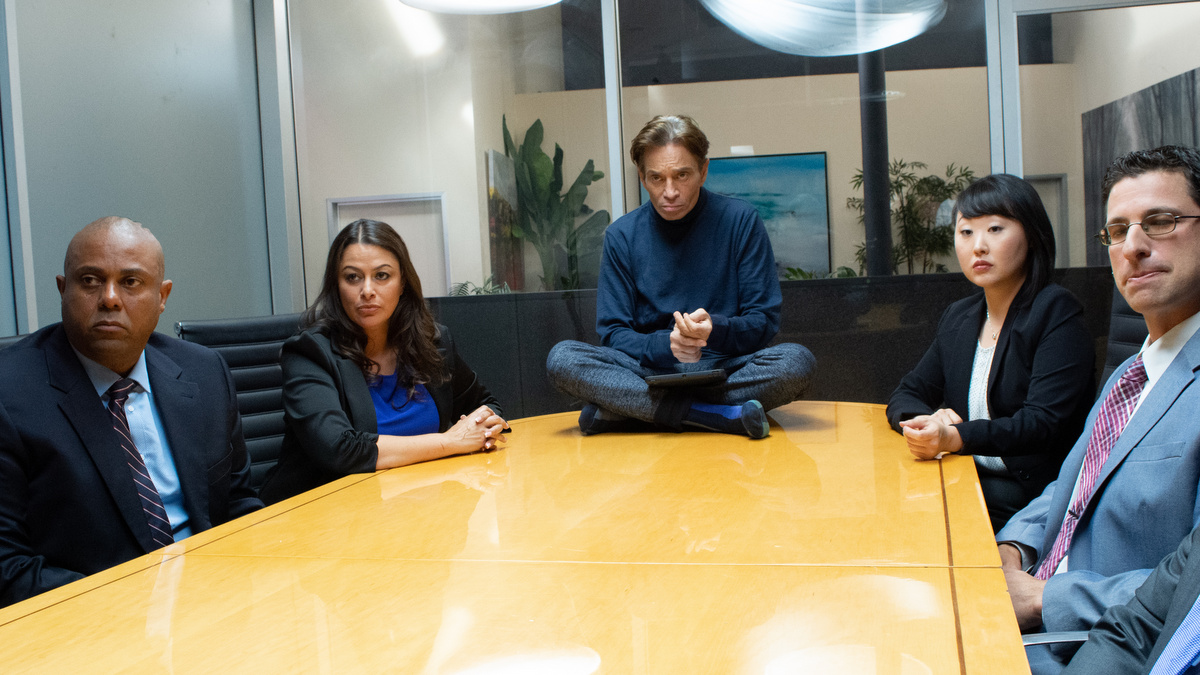
Patrick Perez Vidauri was born in East Los Angeles. He grew up in a diverse bedroom community of Hacienda Heights in the San Gabriel Valley. “My parents got a divorce while I was in high school and I chose the farthest College I could get into, Columbia University in the City of New York. I always knew I wanted to be a filmmaker. I made movies with my brothers growing up. I acted in theater in high school and college. But I was told a piece of advice that made a lot of sense to me. My uncle who attended Harvard said, “in college, take everything. Don’t major in what you want to do in life. You’ll have the rest of your life to dedicate to that. In Undergrad, take everything” and I did. Poetry, Astronomy, Literature, Figure Modelling, Theater…. I majored in Anthropology and specialized in the post classic Mayan civilization of the Yucatan Peninsula.”, says Patrick
After I got out of college, I plunged head first into filmmaking. I learned the ropes by volunteering at a public access cable station, Buena vision Studios. I produced a few shows there. Then, during a trip to Mexico, I made my first short film in a small pueblo, using a few colorful locals as actors. That did it. From there on out, I worked my fingers to the bone to learn the craft of filmmaking. I took classes and worked on movie sets. I learned every aspect of the trade, from grip to editing. My goal was simple, to add the missing Latino Voice back into the chorus of the American Choir. But I wasn’t getting where I wanted to be so I went to film school
Mine is not a short story because this has been a long fight. Along the way I’ve carved out a living for my family within the film and television industry. I’ve directed television and two feature films
The Official Trailer for In Other Words directed and producer by Patrick Perez Vidauri
indieactivity : How do you choose a project to direct? [What things do you consider?
Patrick Perez Vidauri (PPV) : I favor comedies and dramas that allow us to see things from new angles. Breaking perceptions is a common theme in my films. People are not who you expect them to be. The stories I prefer are universally human first, and Latino second. For the most part, I have been lucky enough to work on scripts that my wife and I have written together or separately
Why filmmaking and screenwriting? Why did you get into it?
PPV: I got into Filmmaking because I feel like movies are our modern myths. They are the stories we tell each other to explain who we are, and what we must do to survive in the modern world. But I also saw that people didn’t look like me on the big screen. So I made it my life’s mission to change that. But change can only come when people like your work and it resonates with the audience. Wanting to do better isn’t enough. We have to do great work that uses the timeless principles of dramatic structure to tell new and interesting stories.
‘How can a filmmaker, if she so chooses, distribute her film? How do you get it in front of an audience?
PPV: Distribution is the part that filmmakers often think about last. We spend all of our time learning to write, produce, direct and edit a movie, that we leave no time for anything else. In our case we were lucky enough to find distribution on both of our feature films. This time has been much better as our Parent company, Grandave Capital, put together a team with an expert in film distribution, Tamara Nagahiro, in charge of finding distribution nationally and internationally. That is how our film found its way to HBO Latino for a February 2021 premiere.
Is there anything about the making of independent film business you still struggle with?
PPV: Getting a project green lit is a struggle, casting is a struggle. Especially in the Latino world, we don’t have a lot of “bankable stars” and that creates problems from finance to distribution. Until we have a larger cadre of name talent, we are going to continue to struggle in launching Latino-helmed projects.
Talk to us about your concept of collaboration?
PPV: Collaboration is what this craft is all about. My job is to create an environment for miracles to happen. I strive for my sets to be positive, stress free, creative environments where people on cast and crew can shine.
When you are offered a project, what things do you put in place to deliver a good job?
PPV: When I work on a project, I always give it my all. Whether its high or low budget, I do my level best and put all my talents into it. I don’t have the luxury of failure. I have been told that it’s OK to fail. But I also know that unless I succeed, I may not be given another opportunity. So failure is not an option and this motivates me to listen to criticism, adjust and constantly improve my movies.

How do you find the process of filmmaking as an indie filmmaker?
PPV: I find the process of filmmaking to be all-encompassing. For me as a guild editor, working in television for many years, as well as an independent filmmaker, who has learned every aspect from script to screen, I am involved with every step in the process from concepts into delivery.
Why would you choose an actor, writer or producer? What do you look for?
PPV: I choose collaborators who have given there-over to their dreams. I don’t like people who dabble, or are “trying it out”. You must be someone who has committed wholeheartedly to your craft and worked day in and day out to make a career of it. I look for people who are truly committed.
At what period in the filmmaking process, do you need to start planning for distribution?
PPV: Distribution comes up in the casting of a project. Since it’s a Star based system, I learned early on that you need good recognizable cast members and a great film to have a shot at landing distribution.
Indie filmmaking is a model of zero or small budget. How do you get a film to the audience with such a budget?
PPV: First of all, you can’t make it look like a small budget. Nobody ever excuses your film because of the budget. No matter what your funds, our job as filmmakers is to make a great story where the audience is pulled in and forgets themselves. People only respond to good storytelling. The budget shouldn’t matter or be an excuse for shoddy storytelling. We were able to achieve the same look as larger films because we used a smaller crew and more pages per day with less takes. This takes great actors, great camera department, and a little luck!
How do you think filmmakers can finance their projects?
PPV: We financed our first feature film with money we had saved to remodel our bathroom. If this is something you want to do, you have to find a way. Eventually, after people saw what we could do with our self-financed movie, we began to get interest from financiers with deeper pockets.

Describe your most recent work or film, take us through pre, production and post production?
PPV: My second feature film is called “In Other Words” starring Chris Kattan, Edy Ganem, Bryan McClure, and Natasha Esca. It was written by my wife and myself from an original story pitched to us by Film Finance company, Grandave Capital. It was based on the life of a friend of our Executive Producer. His friend was travelling in Europe and fell for a girl who didn’t speak English. He courted her with a translation dictionary in hand. That was the premise, but because part of our mission is to expand Latinx voices on the big screen, we were asked to make it take place in Mexico. That was the premise, and Cristina and I crafted a story from there. When the script was ready, we realized that we couldn’t afford to travel with cast and crew to Mexico. The project seemed impossible, until I found a winery in Malibu that allowed us to film there for an affordable price. That truly was the piece that set our project in motion. With our location secure, we began casting in earnest. I used the relationships I developed with former head SNL writer Andrew Steele to help cast SNL alumni for our movie. We were so happy when SNL legend Chris Kattan agreed to come aboard. Edy Ganem (Devious Maids) is someone I worked with on my first feature film, a comedy called “Lola’s Love Shack” and she returned to work with us again, which was awesome. We also got Latino film legends Enrique Castillo (Blood in Blood Out) and Renee Victor (Coco) and many more.
Once it was all cast, we had a tight schedule to keep to stay on budget. We shot for 17 days, often only getting one or two takes per shot because that’s all we had time for. I was extremely pleased with our DP, Istvan Lettang, who gave us amazing shots that make our film look like it had a 2 million dollar budget.
Once it was in the can, I had my assistant editor assemble a rough cut from my circle takes. I am a union editor with a decade of experience cutting Television and film, so I decided to edit the first cut myself in order to save money. Then for the polish, I brought aboard a friend of mine who cuts for The Blacklist, Orlando Machado. He trimmed the fat and made our final cut lean and mean.
The real magic happened when we added the music. Daniel Hamuy created an original symphonic score for the piece, and then had it recorded with the Sofia Radio Symphony Orchestra in Sofia Bulgaria for pennies on the dollar. The real orchestra added so much to the final piece, truly amazing. Also, my music supervisor Mark Torres who hosts a radio show on 90.7 KPFK in Los Angeles brought me great rock, pop, and Latin alternative music to include in the film. Nancy Sanchez is the singer/songwriter who wrote a bunch of original pieces for the film including the title track “In Other Words”. When it all came together, nobody could believe what we were able to pull off with so few shooting days and on a low budget.
Did the tight shooting schedule make it harder or easier? How did it affect performances?
PPV: The tight shooting schedule was a huge challenge. We also didn’t have pre-production funds for rehearsal. But luckily our leading man Bryan McClure did his homework and was completely prepared every single day. There were times when he only got one take to do an important scene because we were losing sunlight, but he nailed it every single time. If he flubbed his lines we wouldn’t have gotten the scene, but he never did.
When did you form your production company – and what was the original motivation for its formation?
PPV: We formed our first production company 8 years ago in order to expand Latinx’s voices in film and television. It’s our mission to show aspects of the American Latino experience that are not normally seen. We will never make a movie about gang banger, narcos, maids, or criminals. We want our films to be inclusive, uplifting, enlightening and mainstream.
The Official Trailer for Lola’s Love Shack directed by Patrick Perez Vidauri
What other films have you written and made?
PPV: It looks like a long, hot summer for high-schoolers Beetle, Joker and Sharky as the three friends embark on a quest to become men. After blowing it with local hottie Felicia, the three search for the mythical underground brothel shrouded in myth and secrecy, Lola’s Love Shack. Follow these three through a series of madcap adventures on the streets of their barrio, but it’s going to take a lot of guts, money and some fake ID’s because Lola’s Love Shack is their last stop for losing it.
What do you hope audiences will get from the presentation of your film?
PPV: I want audiences to see an unexpected side of Mexico and Mexicans in general. We highlight food, love, generosity, kindness, and fun. Our world is one where cultures live everyday side by side in harmony, but that isn’t depicted on the screen. In our film, it is.
What are your future goals?
PPV: I want to keep directing films that expand people’s perceptions of the “Other” and show that we are all truly interconnected.
Tell us about what you think indie filmmaker need in today’s world of filmmaking?
PPV: Talented diverse directors with unique voices need to be funded. WE also need more Latinx starts who can open movies. A lot of the decisions made on whether or not to green-light a film come about based on the value of the lead actors. Unless we have more “bankable stars” we’re not going to see much changing in terms of Latinx diversity in front of and behind the camera.
What else have you got in the works?
PPV: Our next film is called “Like. Share. Kill”. It’s a thriller about the worldwide proliferation of fake news that fans hatred and leads to murder. It tells three intertwining stories of how fake news travels around the world and the deadly results of it. We are scheduled to shoot Spring of 2021
Tell us what you think of the interview with “Patrick Perez Vidauri” What do you think of it? What ideas did you get? Do you have any suggestions? Or did it help you? Lets have your comments below and/or on Facebook or Instagram! Or join me on Twitter @oladapobamidele
Follow Patrick Perez Vidauri on Social Media
IMDb
Richard Green Documentary, ‘I Know Catherine, The Log Lady’: Premiere in NYC, LA May 9th
Lynchian Doc I Know Catherine, The Log Lady Makes Hollywood Premiere 4/17, Rollout to Follow
In Camera by Naqqash Khlalid Launch on VOD April 29
Naqqash Khlalid’s Directs Nabhan Rizwan. In Camera stars an EE BAFTA Rising Star Award Nominee.
2025 Philip K. Dick Sci-Fi Film Festival Award Winners Announced
Vanessa Ly’s Memories of the Future Awarded Best PKD Feature
Dreaming of You by Jack McCafferty Debuts VOD & DVD for April Release
Freestyle Acquires “Dreaming of You” for April 15th Release
Hello Stranger by Paul Raschid set for London Games Festival & BIFFF
The film Is set for an April 10th Premiere at The Genesis Cinema in London (LGF) and BIFFF
Daydreamers Official Trailer by Timothy Linh Bui: Released by Dark Star Pictures
Daydreamers Vietnamese Vampire Thriller – May 2nd release









